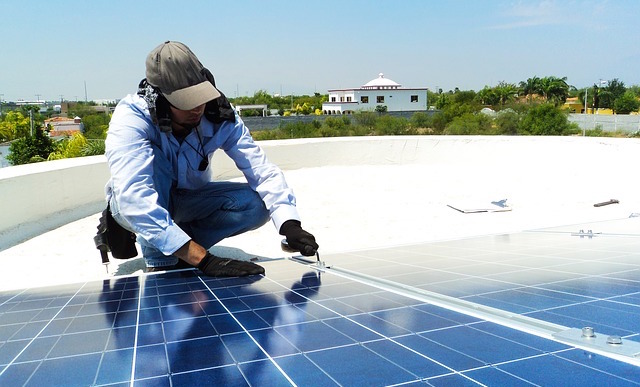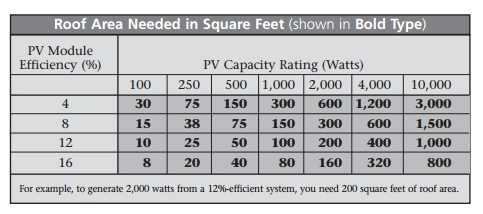6 Tips for Finding Good Solar Contractors and Going Solar

Finding Solar Contractors
Going solar can seem like a daunting challenge if you are just starting your research. You’ll need to figure out how large your system should be, who should install it, how to finance the system, and how to work with your local utility company to tie into the grid – among other things!
The good news is that if you find the right solar contractor, they can help you navigate the entire process, answer questions along the way, and provide you with the peace of mind that you need in order to feel great about your decision to invest in solar.
Let’s read about some things that we should be considering during our search for the right installer.
Flipping through the yellow pages and making random phone calls might work, but there are a few things that you can try to help narrow down your list before you start researching individual contractors in earnest. To start, check with your local utility or the local/state agency in charge of your local utility. They might already have a list of pre-qualified installers that are certified to work on your system. Most pro-solar states, like California, have a database like this to help you get started.
#1 Getting Multiple Quotes
Before you commit to any specific solar contractor it is highly important that you get multiple quotes and interview with multiple installers. Yes, interview. Make no mistake, purchasing a solar panel system and having it professionally installed is not a small job. The workers will be performing modifications to your roof and handling very expensive electrical equipment. With this in mind, it is important that you are doing your due diligence in determining who is right for the job.
Don’t be afraid to entertain multiple bids and ask lots of questions during the interviews to determine how knowledgeable your potential installer is about solar power and roofing. During this time you should also be paying attention to how quickly the company responds to your inquiries, their general attitude, their level of helpfulness, and how genuine they are. All of these qualities will factor into their finished product and it might be worth paying a little extra to ensure that your process is as painless as possible.
Questions to Ask Your Potential Solar Contractor:
- How many years have you been in business?
- How many installations have you completed? In my area?
- Have you worked with my roof type in the past?
- Who will design the solar system?
- Are you familiar with local rules and regulations for installing solar?
- Do you have experience with interconnection and net metering?
- Are you certified?
- Are you insured?
- May I have a list of references to contact about your previous work?
#2 Checking Solar Contractor Reviews and References
Once you’ve identified a small list of contractors that you are interested in working with, start by looking online for reviews of these companies. If they do not have an online presence it is not necessarily a red flag, but it should be comforting to see lots of positive reviews on the company that you are looking into. Pay special attention to any details provided about finished work, timeliness, and general level of satisfaction from the job.
More: What are the best residential solar installers?
After you’ve tossed out any contractors with poor or a lack of reviews you can start asking for references. Even in the modern age of internet reviews, honest face-to-face recommendations from other customers simply cannot be matched in terms of authenticity. Don’t shy away from asking your potential installer for references from some of their recent clients. If they refuse to give you the information then they are probably not worth working with.
Questions to Ask Your References:
Just as if you were checking up on any other contractor, you should ask the following:
- How similar is their system to what you are looking for?
- Did the contractor clearly explain the entire process to you?
- Were they timely?
- How did their crew perform the work? Were they pleasant and easy to work with?
- How was communication with the company?
- Did the job come in under budget?
- Did you get the results you were looking for?
- Would you hire them again?
#3 Handling the Fine Print
As I mentioned before, a solar panel installation is a major commitment and carries a substantial financial investment. It is extremely important to read your entire contract carefully and ask questions about anything that seems unclear or disadvantageous to you.
Getting into every detail of a contract could require the services of a lawyer if you want to be certain you are protected. Here are some key things to watch out for to make sure that you are aware of how the contractor will perform under certain circumstances and to ensure that you are protected.
- Scope of work – this includes obtaining permits, labor, equipment, materials, etc. as well as adherence to the design specs.
- Timing of the work – making sure the project starts and finishes on time.
- Payment – how and when the contractor is to be paid for work.
- Changes to work – you should make sure that you must sign for any changes made.
- Warranties – What type of warranty is included?
- Default Provisions – what happens if there is a breach of contract?
- Lein waivers – in construction projects, it is typical that you request a lien waiver after each milestone payment to ensure that both parties have signed off on the work.
- Project dates – having a timeline written into the contract will help ensure a timely finish.
- Escape Hatch – what happens if your financing falls through or you otherwise have to pull out of the contract?
- Signatures – a binding contract must have the signature of both parties.
#4 Choosing the Right Equipment/Installation
Determining how large your system should be and what type of equipment will work best is one of the first priorities that you’ll have. This will factor into your next decisions about the type of equipment you need for your system. The right solar contractor should be able to help you navigate through these options and find what works best for your unique situation.
Earlier I mentioned that you should ask your installer who will be designing your system. The reason for this is simple: not every system works on every roof. It is important that your installer is capable of designing a system that is tailored to your exact needs: roof pitch, shade, sunlight exposure, etc.
How Big Should Your System Be?
First, ask yourself what your goals are for your system:
- Are you trying to power your entire home and be completely independent of your utility company’s power?
- Do you just want to save a portion of your energy bill?
- What is your budget for the project?

Photo courtesy of NREL.gov
As you can see in the chart, the size requirements for your system will be determined by multiple factors such as the panels used and your desired output.
Different Types of Equipment
An experienced installer should be familiar with lots of different types of equipment. Remember that your system will include not only the panels themselves, but also inverters, cables, mounting framework, and other miscellaneous items. If you have done your research and selected a top-notch solar contractor then you should feel confident that they will be able to help you determine the best equipment for the job.
You do not need to be an expert, but review some information online about power inverters and the basics of solar panel installations so that you can ask your potential solar contractor some questions about your system:
- What type of power inverter will they be using?
- What type of solar panels will they be using?
- What is the efficiency rating of the panels?
- Will you be able to monitor the electrical output?
- What is the expected degradation over time?
- What is the lifespan of individual components in the system?
#5 Exploring Payment Options
There are two major ways that you will be paying for your system and your solar contractor will be more or less relevant depending on the method you choose.
Cash and Loans
If you choose the cash or loan method, remember that you will be responsible for the total upfront cost of the system. This means that a ballooning budget could end up setting you back way more than you originally thought. It is highly important that you lock in some kind of price guarantee if you are going this route so that they cannot sneak any hidden costs into the equation. If you have your financing pre-approved for a certain amount you could try to put that in the contract as a maximum allowable spend. Also remember that you will be 100% responsible for any maintenance or repairs to your system so you should have complete knowledge of your warranty’s stipulations.
Leasing
If you are leasing your solar panels from your contractor or installer then you should be looking at different areas of the process. Your monthly payment as a lessee will probably be fixed, but this means that your contractor will have a perverse incentive to save as much money as possible on the equipment and installation process. Be sure to double-check their work and ensure that your contract has iron-clad protection for any potential roof damage caused by your system installation. You do not want to ruin the value of your home due to a shoddy solar installation.
#6 What Happens After the Install
It is easy for solar contractors to install your system, take your money, and then ride off into the sunset, never to be seen again. It is important that you put in the work up front to ensure that you will be covered in the future.
Warranty Information
This is the most obvious thing to check. Key watch-outs are the time covered and any exceptions that would void the warranty. Remember that individual components might have different warranty lengths. For instance, even though the panels might be good for 25 years, the inverter might only have a 10-year warranty. Ask as many questions as you need in order to make sure that you are well aware of your rights and limitation.
Longevity of the Company
An iron-clad lease or contract does not really mean anything if the company you are doing business with has gone out of business when you need them to perform a service. Just because a company offers the cheapest price does not mean that they are the best team for the job. In order for them to stay in business, they must provide quality workmanship and service while generating a fair profit. Companies with long histories are preferable. Also preferable is a larger construction company that simply has a branch specifically for solar. This means that they are well-diversified and probably able to withstand changes and ups and downs in the market.
Conclusion
Hopefully, you are feeling a bit more secure about your upcoming solar system installation. Although the task of finding solar contractors can seem daunting, if you break the process down it doesn’t have to be overly complicated. Attention to detail and due diligence are your best friends during this journey. Follow the steps I outlined and you will be well on your way to a great relationship with a great installer!
If you have any comments, questions, or suggestions please feel free to leave a comment!
